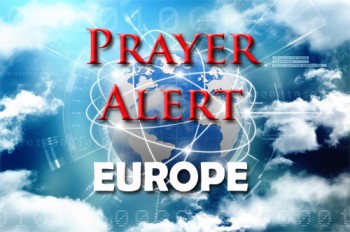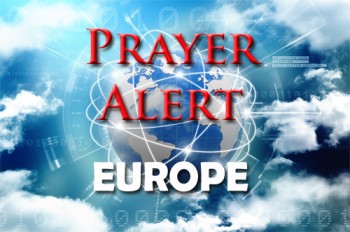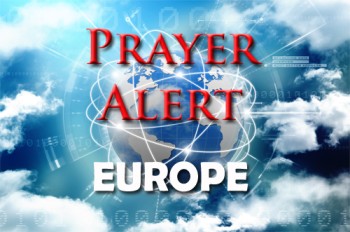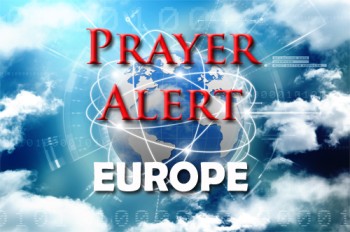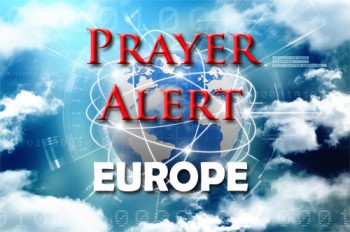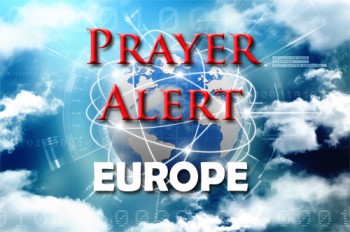Displaying items by tag: Europe
Kosovo: Flare-ups intensify
NATO is deploying 700 additional troops to its peacekeeping mission in Northern Kosovo after clashes with local ethnic Serbian protesters left dozens injured on both sides. Majority-Albanian Kosovo declared independence from Serbia in 2008, but neither Serbia nor ethnic Serbians in Northern Kosovo recognize Kosovo’s independence. Tensions often flare over which government is legitimate. 4,000 NATO troops are keeping the peace as an agreement giving local Serbs autonomy was never implemented. Recent elections in Northern Kosovo were boycotted by the ethnic Serb majority and Kosovo won but Serb protesters prevented leaders' access to their offices until riot police and NATO dispersed them, injuring 30 peacekeepers and 50 protesters. Serbia is on alert to defend ethnic Serbs in Kosovo. Belgrade’s Moscow allies blame Kosovo and the West for the crisis. America and the EU have called for de-escalation.
Ukraine: Bakhmut
There were about 70,000 people living in Bakhmut before the invasion, but only a few thousand remain in the devastated city, once best known for its salt and gypsum mines and huge winery. The US believe over 20,000 Russian soldiers had been killed in the battle for Bakhmut and another 80,000 wounded. Ukraine has not released figures on its Bakhmut casualties, but there have been heavy losses. Capturing Bakhmut would bring Russia slightly closer to its goal of controlling all of Donetsk region, one of four regions annexed by Russia following referendums widely condemned outside Russia as a sham. Russia's Wagner mercenary group has started withdrawing from Bakhmut and has vowed to transfer control of the city to the Russian army by 1 June, but Kyiv says it still controls pockets of the city.
Ukraine: weapons and counterattacks
The conflict in Ukraine is about to enter a new high-intensity phase as Kyiv’s troops gear up for an anticipated counteroffensive. Ukraine’s persistent lobbying of allies has yielded significant results as NATO members have gradually relented about supplying high-tech weapons. The fighting in the coming weeks is likely to be bloody, as Ukraine aims to take back territory which Russia captured in the opening weeks of the invasion. A mix of complex weapons from across the world will require the adept handling of logistics if the offensive is to keep up its momentum, and supply and repair are vital for any advance to be successful. The Ukrainian military will have its work cut out. Russian forces have had months to prepare for the series of battles that could define the nature of the war. Both sides realise what is at stake. Russia will not give up its ground easily, despite talk of low morale among its forces.
Bosnia: millions have never heard the gospel
Zenica city in central Bosnia has a small growing community of believers among the 115,000 Bosniak Muslims. Zenica’s large iron factory provides work for thousands, and the university and other businesses attract people from the surrounding communities. Praise God for both foreign and national Christian workers, who are spreading the good news there. In a city known for iron works, we pray for God’s truth shared through believers to remain sharp as iron and penetrate the hearts of many. Some smaller villages are isolated with zero witness among them. Pray that as the community gathers in Zenica, those who are believers would be put into contact with those open and ready to hear the good news. Proverbs 27:17 says iron sharpens iron and one man sharpens another. Father, we ask that believers sharpen one another in spirit and truth and are in such unity that Bosnians will know that it is by Your power they live, move, and find their being.
Turkey: presidential election run-off
Opinion polls predicted a win for opposition candidate Kemal Kilicdaroglu in the election. However, President Erdogan received 49.5% of the votes, making it a serious test of his twenty-year iron rule. Turkey’s economy has soaring inflation, a plummeting lira, and a cost-of-living crisis partly caused by Erdogan’s wacky economic policies. Also the shambolic response to February’s earthquake which killed 50,000 and displaced 1.5 million added to Erdogan’s many corruption and mishandling scandals. Could mild-mannered technocrat Kemal Kilicdaroglu, who is capable of uniting opposition parties of left and right, be what Turkish voters want in the run-off on 28 May? He has pledged to rule Turkey ‘with consultations and compromise’. A million Turkish expats living in the USA, Germany and Canada voted in the first round of the election: Kilicdaroglu has vowed to win the second round.
Ukraine: hope amidst muddled messages
Whole towns flattened into fields of dirt, brick, and branches. People emerge from underground shelters to search for food and relief supplies. One country sent tanks. One country didn’t. Russia is winning. No, Ukraine is winning. Reports coming out of Ukraine are muddled. Different narratives spotlight different elements of the war. Yet the ones who feel forgotten are the Ukrainian families huddled in basements. The local churches are stepping up with aid to places where news cameras won’t go. The Holy Spirit is sending believers with the hope and help of Jesus Christ. Pray for more Christians to arise as messengers of His hope to the hopeless. Ask God to strengthen the Church as it becomes the hands and feet of Jesus, meeting physical and spiritual needs. Pray for increased opportunities for Ukrainians to discover and follow Christ.
Russia / Ukraine: nuclear power plant concerns
Ukraine is expected to attempt to retake Moscow-held Zaporizhzhia territory. The Russian-installed governor of the partly-occupied province ordered 18 settlements near the Zaporizhzhia nuclear power plant to evacuate. The UN's nuclear watchdog is concerned about the facility’s safety. Russian passport-holders were taken to cities on the coast of the Sea of Azov. The International Atomic Energy Agency expressed deepening concern after Russia fired 30+ shells at a Ukrainian-held town near the plant. The nuclear reactors are shut down, but staff and their families remain. Ask God to comfort them in this stressful situation. Meanwhile Ukraine released a video of white fire from phosphorus munitions in the besieged city of Bakhmut, accusing Russia of using incendiary weapons. International law prohibits using any incendiary weapons, and if chemical weapons are used it is a war crime.
EU: anti-corruption sanctions
The EU High Representative and the European Commission are willing to step up in the global fight against kleptocrats. A new anti-corruption sanctions regime would supplement the EU’s existing regime covering worldwide corruption, enabling it quickly and flexibly to complement country-specific anti-corruption policies for targeting dishonest individuals. The proposal would bring the EU into line with other regimes such as the Global Magnitsky Act, passed after investigations into tax fraud by Russian officials, which allows the USA to ban visas and freeze assets of corrupt individuals and human rights abusers worldwide. It is now incumbent upon EU member states to adopt the Commission’s proposal without delay.
Ukraine: Bakhmut defenders losing support
Ukraine’s call for more weapons and ammunition to bolster the defence of Bakhmut has grown louder. A year ago they fired all forty barrels of their rocket launcher in one go. Now they can only afford to fire a few at a time at Russian targets. They haven't got enough ammunition for their weapons but are still called on to provide fire support to Ukrainian forces desperately clinging on to the edges of the town, which Russia has spent months trying to capture. Russians are getting closer to their goal, but at enormous cost. On 1 May a top Ukrainian general said that over 20,000 Russian fighters have been killed in Ukraine since December. Some of the Ukrainian Grad missile supplies are coming from the Czech Republic, Romania and Pakistan. Ukraine is frustrated that it can't provide more support to their fellow fighters being killed in Bakhmut.
Germany: transition - with divine guidance
Germany’s last three nuclear power plants were closed on 15 April. Its car industry has been the market leader for decades. Now production of diesel and petrol engines will end, and gas and oil heating systems will not be installed in homes. Current prosperity, welfare, and economy are being run down and replaced with higher-grade technologies for which technical and personnel replacements are not readily available. Increasing chaos on the railways illustrates the incompatibility of political demands with the current state of infrastructure and the available staffing levels. The political agenda also fuels disruptive actions by climate activists and strikes in the public sector and in state-owned companies. Germany has been entrusted with much historically: the gospel of Jesus Christ, a country of poets and philosophers, a nation with economic stability. Pray for God’s purposes for Germany, not based on history's materialism but on #its God-given identity as a nation.
